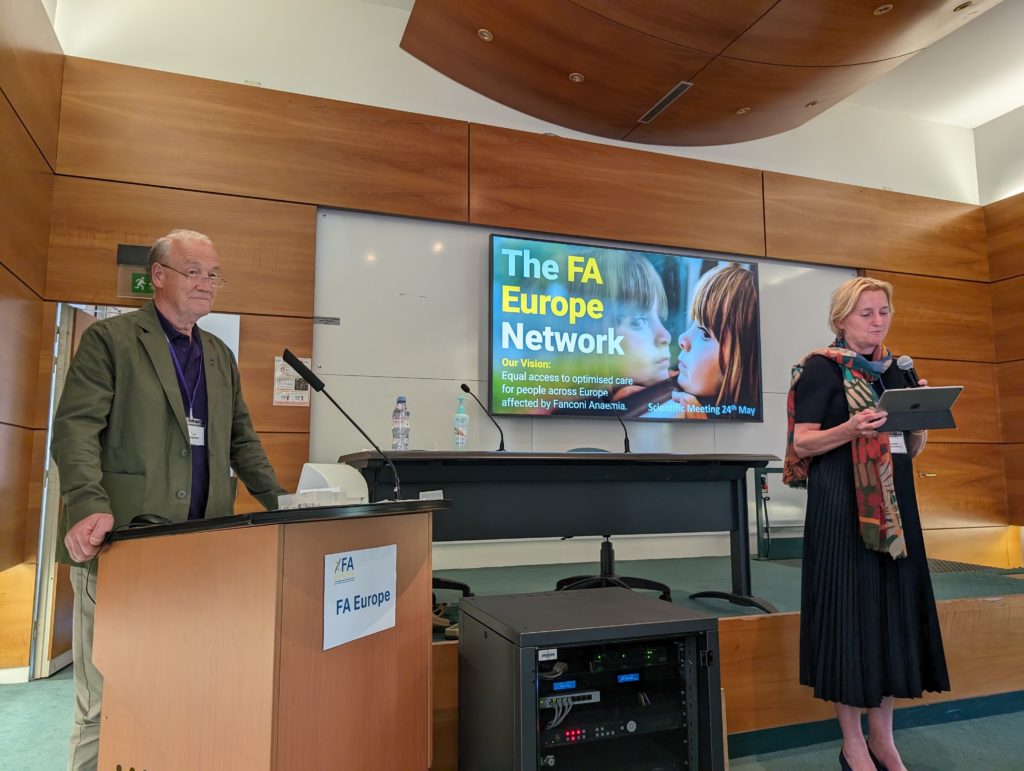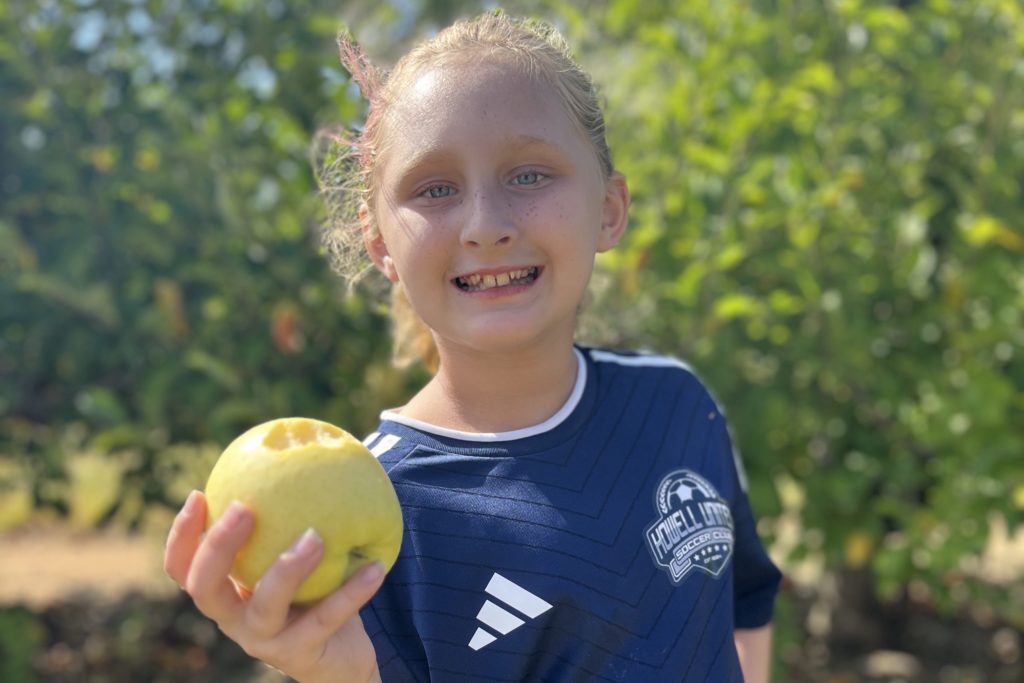The global Fanconi anemia gene therapy program will continue to be available for patients in the USA and Europe during 2018 and 2019. In Europe, a new study, known as FANCOLEN-2, will be available at CIEMAT/Hospital del Niño Jesús in Madrid, Spain, starting in the Fall of 2018. In the USA, a highly similar study will become available at Stanford University in late 2018 or early 2019. Both of these clinical studies will incorporate key learnings from the recent gene therapy studies conducted by the Spanish Network on Fanconi Anemia and Fred Hutchinson Cancer Research Center (Seattle).
As of July 2018, three patients with Fanconi anemia complementation group A (FANCA) have been treated at Fred Hutch (Seattle) and six FANCA patients have received treatment at CIEMAT/Hospital del Niño Jesús (Madrid). Both studies involved collection of patients’ hematopoietic stem cells and transduction with a very similar lentiviral vector followed by infusion of the stem cells without any chemotherapy conditioning. There were some differences in the way that stem cells were removed from patients and purified, and also in the precise manner in which the transduction was performed. Key takeaways from these important clinical studies include:
- The safety profile to-date has been favorable, with no serious side effects attributed to the infusion of gene-corrected blood stem and progenitor cells. Many of the side effects that were seen were related to the procedure utilized for cell removal (apheresis) but were not considered serious.
- Evidence of long-term engraftment of gene-corrected blood-forming cells was not observed in the patients participating in the Fred Hutch clinical study.
- Evidence of long-term hematopoietic engraftment has been observed in the Spanish study with increased gene markings in blood and bone marrow in 4 of 4 patients with 12-24 months of follow-up. The blood counts in these 4 patients have been stabilized (with decreases in platelets and neutrophils noted during the months/years prior to gene therapy) and increasing percentages of gene-corrected blood and bone marrow cells, which progresively became resistant to DNA-damaging agents. Two of the four patients with 12-24 months of follow-up have had blood T-lymphocyte DEB-induced chromosomal fragility tests showing levels of resistance similar to those seen in FA mosaic patients who have had spontaneous correction of the hematologic components of the disorder. These findings were recently presented at the American Society for Cell and Gene Therapy Presidential Symposium (Chicago, May 2018) and will also be presented at the FARF Scientific Symposium in September 2018. Results from the 2 most recently treated patients are expected later in 2018 and in 2019.
- The reasons for differences in study results are not completely known, although the patients in the CIEMAT study were mostly younger (age 3-6) and more stem cells were harvested for correction by gene therapy to subsequently engraft in the bone marrow. Differences in the methods for stem cell purification before the genetic transduction may also have contributed to the outcomes.
The global FA gene therapy programs going forward will utilize the lentiviral vector developed at CIEMAT and will be available for FANCA patients ages 1 through 12 who have not developed severe bone marrow failure. The gene therapy studies are intended to provide prevention of bone marrow failure and potentially the need for an allogeneic bone marrow transplant.
The gene therapy will be administered without conditioning chemotherapy, and will require a (relatively) short hospital stay to collect stem cells over an approximate 6-day period, followed by a single intravenous administration of gene-corrected hematopoietic cells over the course of one hour or less. Patients treated to-date have been able to leave the hospital within 1-2 days after receiving the investigational therapy. Following treatment, study visits, including blood tests, are scheduled over the course of three years, with more frequent visits planned in the weeks and months immediately following the investigational therapy.
These studies are anticipated to begin patient enrollment in Spain during the Fall of 2018 (at CIEMAT/Hospital del Niño Jesús, Madrid), with enrollment at University College London/ Great Ormond Street Hospital in England to follow. US enrollment at Stanford University will begin in either late 2018 or early in 2019. Both the US and European programs are sponsored by Rocket Pharma (New York, USA). Assistance will be available for families to help with travel, housing accommodations, and other support., both for initial treatment and subsequent follow-up visits.
The principal investigators for the studies are as follows:
Ciemat (Madrid, Spain):
Juan Bueren, PhD: program director
Paula Río, PhD: associated investigator
Susana Navarro, PhD: associated investigator
Hospital del Niño Jesús (Madrid, Spain)
Julian Sevilla, MD PhD: principal investigator
Hospital Val d’Hebrón (Barcelona, Spain)
Cristina Díaz de Heredia, MD, PhD, co-principal investigator
UCL/Great Ormond Street (London, England):
Adrian Thrasher, PhD: program director
Claire Booth, MBBS, MSc, PhD: principal investigator
Stanford University (Palo Alto, CA, USA):
Maria Grazia Roncarolo, MD: program director
Sandeep Soni, MD: principal investigator
Agnieszka Czechowicz, MD PhD: co-investigator
Additional centers in the EU/US may participate in the program in the future, and Hans-Peter Kiem, Pamela Becker, Jennifer Adair, and other colleagues from Fred Hutch will continue to serve as key advisors for the gene therapy studies.
If you or your family member may be interested in enrolling in the gene therapy trials during the Fall of 2018 and would like to learn more, please contact:
Dr. Juan Bueren: juan.bueren@ciemat.es
Dr. Julian Sevilla: julian.sevilla@salud.madrid.org
Dr. Agnieszka Czechowicz: aneeshka@stanford.edu
Dr. Gayatri Rao: gr@rocketpharma.com
This article was written by participating institutions: CIEMAT, Fred Hutch, Stanford, UCL and Rocket Pharma.




